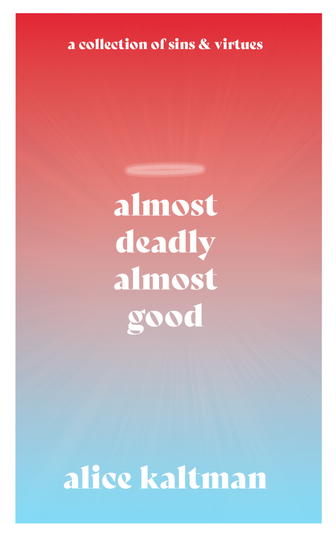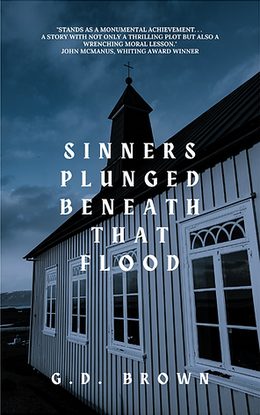Most of us are familiar with the concept of the seven deadly sins: gluttony, envy, wrath, lust, sloth, to name a few. Alice Kaltman embraces these sins—along with their virtuous counterparts—in her short story collection, Almost Deadly, Almost Good. She personifies the sins in her complex characters while exploring an equal number of virtues. Her stories depict the tragedies and triumphs of human nature. Characters embodying gluttony, envy, and wrath seem to be in a constant state of inner conflict and turmoil while those who practice kindness, humility, and patience have better outcomes.
0 Comments
While it’s typical for media to display love under rose-colored lenses, The Geography of First Kisses by Karin Cecile Davidson shows the in-betweens of romance. Davidson reveals the love, loss, and nostalgia of relationships through the use of fully realized characters and descriptive language. With each short story, the characters feel close enough to the reader’s heart that it’s easy to trick the brain into thinking the whole book was about them from cover to cover.
It’s not every day that people run to the Northwoods, particularly in the Wisconsin region, for safety and stability. Yet it proves itself to be the perfect backdrop for Jill Stukenberg’s News of the Air. In this novel, Stukenberg paints the picture of a near future with repeated violent protests flooding the cities and wildfires rampaging the rest. In what starts off with a similar feel to The Handmaid’s Tale, Stukenberg details the journey of a young family, especially the mother, sacrificing the pleasures of city life for a new, safer life in the woods where her daughter can stretch her legs and peace can envelop them all. However, as life goes on, the daunting realization creeps up that trouble is everywhere and that running away from your problems often creates new ones, maybe even ones that you can’t run from anymore.
From page one, author Julian Mithra demonstrates a mastery over various literary formats: poems, short stories, newspaper and magazine articles, textbook excerpts, and more. Mithra uses each form a number of times, using and subverting conventions to draw the reader deeper into the fictional town of Goldened, Colorado. The result is a town, complete with people and history, that comes to life with each new page and imagined document, making you feel like you’re unearthing a lost shard of history. Giving voice to voiceless rocks, moles, and other dwellers of the dirt, Unearthingly had me digging deeper and deeper with each imaginary document.
G.D. Brown’s Sinners Plunged Beneath that Flood is set in the dreary backdrop of a small Oklahoma town of Mayes County in the autumn of 1998—given life by the tantalizing group of characters who are thrust into solving this small town’s disappearances and other strange happenings.
In the opening lines of Sinners Plunged Beneath that Flood, Brown plants seeds into the reader’s mind by placing them in media res, teasing them with a glimpse into the characters, setting, and plot: “The fall of Jenn's senior year of high school, she learned that a person could be missing without having been gone for 48 hours, among other things. The leaves were brown and crunchy then, shriveled letters from the summer sun to warn of the coming cold” (1). In just the first few opening lines, Brown has the reader asking innumerable questions - those that can only be answered by delving deeper into the wayward world he builds throughout the novel. |
Archives
July 2024
Categories
All
|
|
Glassworks is a publication of Rowan University's Master of Arts in Writing 260 Victoria Street • Glassboro, New Jersey 08028 [email protected] |
All Content on this Site (c) 2024 Glassworks
|






 RSS Feed
RSS Feed
